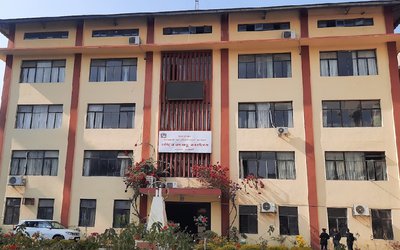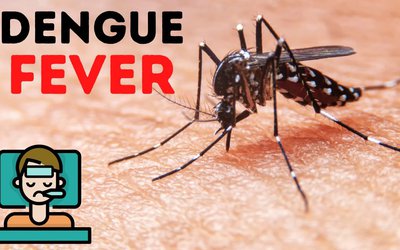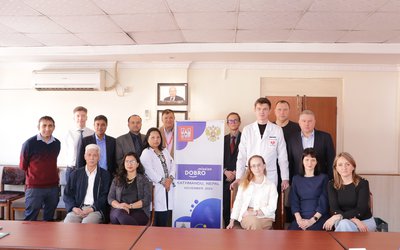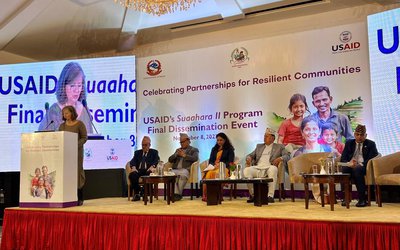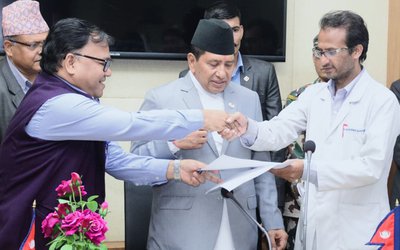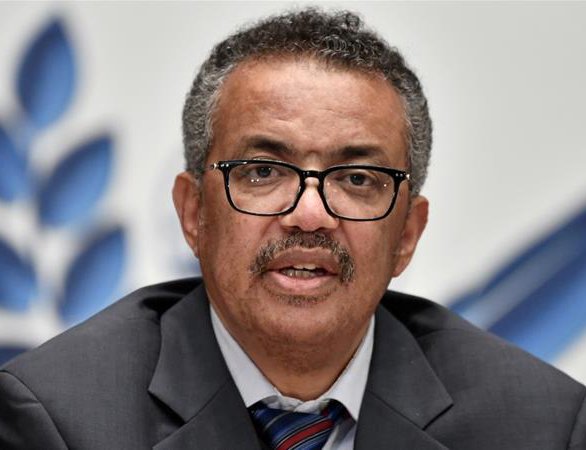
WHO Director General Tedros Adhanom Ghebreyesus on Wednesday said that a majority of people admitted to hospitals globally are unvaccinated, adding that vaccination is effective in preventing severe disease and death.
World Health Organisation (WHO) director-general Tedros Adhanom Ghebreyesus on Wednesday said that a majority of people admitted to hospitals globally are unvaccinated.
He stated while vaccination is effective in preventing severe disease and death, transmission cannot be stopped.
"A majority of people admitted to hospitals around the world are unvaccinated. While vaccines remain very effective at preventing severe disease and death, they do not fully prevent transmission," the WHO head said.
"More transmission means more hospitalisations, more deaths, more people off work, including teachers and health workers, and more risk of another variant emerging that is even more transmissible and more deadly than Omicron," he added.
The WHO chief said that pregnant women should participate in clinical trials and have access to vaccinations.
"Data shows several healthcare workers have quit or considered quitting. Pregnant women are at higher risk for severe disease. They should be included in clinical trials and have access to vaccinations. Also, mother to baby transmission in the uterus or during birth is very rare, and no active virus has been identified in breast milk," Tedros said.
The WHO chief spoke about vaccine inequity, asserting that it is a killer of people and jobs, and undermines global economic recovery. He said, "Alpha, Beta, Delta, Gamma and Omicron reflect that in part because of low vaccination rates, we have created the perfect conditions for the emergence of virus variants."
"Vaccine inequity and health inequity overall were the biggest failures of last year. While some countries have had enough personal protective equipment, tests and vaccines to stockpile throughout this pandemic, many countries do not have enough to meet basic baseline needs or modest targets, which no rich country would be satisfied with," he added.
Tedros stated that while Omicron does appear to be less severe compared to Delta variant, especially in those vaccinated, it does not mean that it should be categorised as "mild".
"Just like previous variants, Omicron is hospitalising people and it is killing people," he said.
According to the WHO's Covid-19 Weekly Epidemiological Update, more than 15 million new cases of Covid-19 were reported globally during the week January 3-9, 2022, which is a 55 per cent increase compared to the previous week.
The WHO has established the Technical Advisory Group on Covid-19 Vaccine Composition (TAG-CO-VAC) to review and assess the public health implications of emerging SARS-CoV-2 Variants of Concern (VOC) on the performance of Covid-19 vaccines, and to provide recommendations to WHO on Covid-19 vaccine composition, as needed.
In the context of the circulation of Omicron SARS-CoV-2 Variant of Concern (VOC), the TAG-CO-VAC urges broader access globally to current COVID-19 vaccines for primary series and booster doses, in the hope that this also mitigates the emergence and impact of new VOCs, read a statement.
"The TAG-CO-VAC is considering the strain composition of COVID-19 vaccines, and encourages vaccine developers to gather data on a small scale on the breadth and magnitude of immune response for monovalent and multivalent vaccines against VOCs this data would then be considered in a broader decision-making framework on vaccine composition by the TAG-CO-VAC," the statement said.
In September last year, the WHO established the TAG-CO-VAC. This multidisciplinary group of 18 experts reviews and assesses the public health implications of emerging VOCs on the performance of COVID-19 vaccines and provides recommendations on COVID-19 vaccine composition. The work of this group complements that of the Technical Advisory Group on SARS-CoV-2 Virus Evolution (TAG-VE), the Strategic Advisory Group of Experts on Immunisation (SAGE) and its Working Group on COVID-19 Vaccines, and the working groups of the WHO R&D Blueprint for Epidemics.
Since its emergence, the SARS-CoV-2 virus has continued to evolve and WHO has designated five variants as SARS-CoV-2 Variants of Concern (VOC) to date - namely Alpha, Beta, Gamma, Delta and Omicron - due to their impact on transmission, disease severity, or capacity for immune escape. While the Omicron variant is spreading rapidly across the world, the evolution of SARS-CoV-2 is expected to continue and Omicron is unlikely to be the last VOC.
"The TAG-CO-VAC is developing a framework to analyse the evidence on emerging VOCs in the context of criteria that would trigger a recommendation to change Covid-19 vaccine strain composition and will advise WHO on updated vaccine compositions, as required," the WHO said.
It added, "This framework considers the global spread and transmissibility, clinical severity, genetic, antigenic and phenotypic characteristics of the VOC, including capacity for immune escape and assessments of vaccine effectiveness."
Since the WHO classified the Omicron variant as a VOC on November 26 last year, the TAG-CO-VAC has met regularly to review the evidence on the characteristics of the new variant.
Source: India Today
- Biden And Netanyahu Discuss Gaza Ceasefire
- Jul 26, 2024
- Paris Olympic Will Start On Saturday
- Jul 25, 2024
- IOC Names Hosts Of Winter Games
- Jul 25, 2024
- 85 % Paddy Plantation Completes Nationwide
- Jul 24, 2024
- Kamala Harris Hits Presidential Campaign Trail
- Jul 24, 2024

